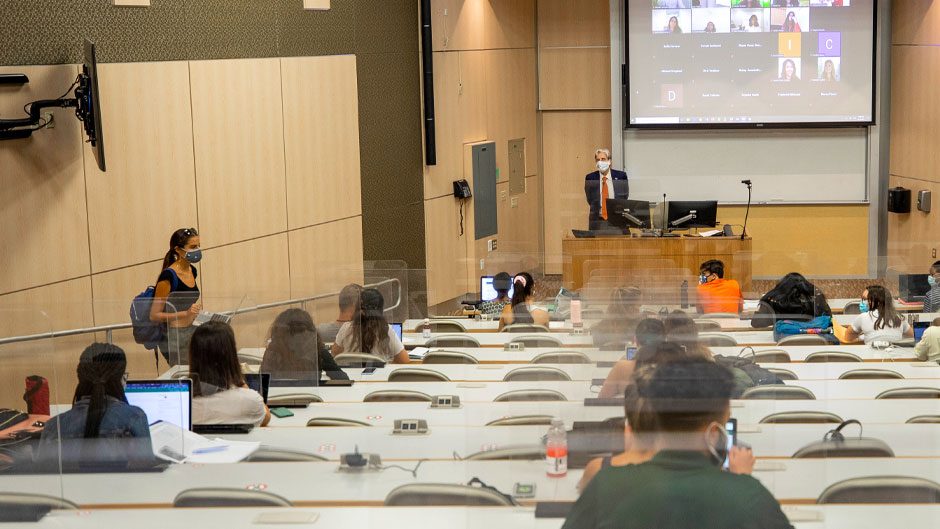The global COVID-19 pandemic has revealed crucial fissures in health care systems across the globe as well as the vulnerability of marginalized groups whose fragile societal standing—poor nutrition, substandard housing, and lack of access to health care to name a few—have made them easy victims to the virus.
A course at the University of Miami, “Introduction to Global Health: Effective Responses to Hemispheric Challenges,” will explore how the pandemic has affected various areas of the globe, with a focus on the current challenges in Latin America and the Caribbean.
The class is being taught by President Julio Frenk, a medical doctor and global health expert, who is the former minister of health for Mexico; Felicia Marie Knaul, a health economist whose career includes key positions in government in Mexico and Colombia and who is the director of the University’s Institute for Advanced Study of the Americas and a faculty member at the Miller School of Medicine; and Michael Touchton, associate professor of political science who has studied governance and public health in Latin America throughout his career.
“The COVID-19 pandemic has revealed clear divides between the health outcomes and well-being of diverse populations,” said Frenk. “This is a crucial moment for future leaders from diverse disciplines to come together to combat the pandemic and improve global health.”
The course will also track the intense changes in demographics, from population growth to rapid urbanization, along with unprecedented shifts in patterns of disease and cross-border risks, said Touchton.
“Latin America is the global hot spot for COVID-19. This raging pandemic has devasted health systems and fractured their ability to respond to the health needs of populations. Yet, of this devastation comes the opportunity to seek ways to build-back-better and Latin America offers us a unique opportunity to identify ways in which governments and health institutions can safeguard citizens going forward,” said Knaul, who also oversees the Latin America COVID-19 Observatory.
According to Touchton, the class offers an ideal venue to study the pandemic as an example of real-time global health policy making, global health action, and how it has uncovered public health inequities around the world.
“We felt it was essential to cover the pandemic in class,” he said. “A focus on global health was already there but now we have real-time examples of what works well and what does not work at all from a global health perspective.”
Some topics that will discussed include poor governance by different countries, as well as access to health care to marginalized populations.
“For the most part, the Americas have not reacted well to the pandemic and this includes the U.S.,” Touchton said. “There are some exceptions including Canada and some countries in Latin America, like Uruguay and Costa Rica.”
On the other hand, many Asian countries—like Singapore, South Korea, and Taiwan—reacted well by issuing stay at home orders, followed by testing, contact tracing, and mandatory use of masks, he said.
The course has a star list of guest lecturers including: Dr. Cesar Victora, from the Federal University of Pelotas in Brazil winner of the Gairdner Prize in global health; Dr. Patricia Garcia, former Minister of Health of Peru and graduate of the Harrington Medical Training Program and Sir George Alleyne, Director Emeritus of PAHO and honorary doctoral degree recipient from University of Miami in 2019.

